Science Fiction, Disruption and Tourism
Join the editors and contributors of a new publication to explore the future of tourism through the lens of science fiction.
This event is online-only and registration is required via Zoom here.
How does science fiction portray the future of tourism and what is the value of this genre to researchers and practitioners? To some, COVID-19 was straight out of a science fiction story as portrayed by Dean Koontz prediction about Wuhan 400. Alternatively, what is the science and technology behind the TV series WestWorld? Science Fiction, Disruption and Tourism is a new book which recreates and invents the future of tourism in a creative and disruptive manner, reconceptualising tourism through alternative and quantum leap thinking that goes beyond the normative or accepted view of tourism. Join the editors, Ian Yeoman, Una McMahon-Beattie & Marianna Sigala and contributors Leon Gurevitch, Mairead McEntee and Emily Höckert as we discuss the virtues, implications, insights and stories about the future of tourism through a lens of science fiction.
Ian Yeoman: The Lens of Science Fiction as a Theoretical Framework
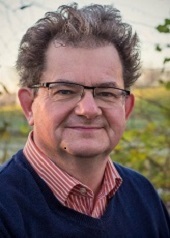 The central contribution of the book lies in the theoretical framework it presents for exploring a future of tourism based upon science fiction. From an ontological perspective, the assumption is that the future can be explained through science fiction. From an epistemological perspective, the book identifies and engages with a number of concepts, including: plurality, disruption and transformation, hyperreality of authenticity, dystopia, liminality, scepticism and the importance of narrative.
The central contribution of the book lies in the theoretical framework it presents for exploring a future of tourism based upon science fiction. From an ontological perspective, the assumption is that the future can be explained through science fiction. From an epistemological perspective, the book identifies and engages with a number of concepts, including: plurality, disruption and transformation, hyperreality of authenticity, dystopia, liminality, scepticism and the importance of narrative.
Ian Yeoman is an advocate for the future of tourism. He is an Associate Professor at Victoria University of Wellington and Visiting Professors at the European Tourism Futures Institute and Ulster University. He is the editor of the Journal of Revenue and Pricing Management, co-editor of the Journal of Tourism Futures and co-editor of Channelview’s Tourism Futures series. Ian is the author or editor of over twenty books
Leon Gurevitch: A Life Without Limits: Design, Technology and Tourism Futures in Westworld
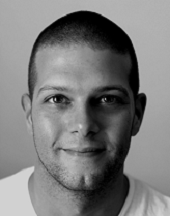 Dr Gurevitch uses a design theory perspective which intertwines media, tourism futures and design to explore the disruptive potential of technology to deliver experiences and the desire of tourists to feel free from the moral, social, economic and political constraints of their daily lives.
Dr Gurevitch uses a design theory perspective which intertwines media, tourism futures and design to explore the disruptive potential of technology to deliver experiences and the desire of tourists to feel free from the moral, social, economic and political constraints of their daily lives.
Dr Leon Gurevitch is Associate Professor and Associate Dean of Research and Innovation in the Faculty of Architecture and Design at Victoria University of Wellington. Leon publishes academic writing, usable software, data visualisation and media design work and astrophotography. His research is focused on the interface between science, technology, humanities and design.
Mairead McEntee: Destination of the Dead: The Future for Tourism
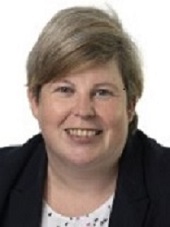 Ms McEntee considers tourists a plague of zombies within the context of sustainability. The chapter takes a novel look at tourism and its impact on the people and places that experience excessive numbers of tourists. Zombies are now a clear genre in popular culture, appearing in countless movies, TV programmes and comic books, all of which depict crowds of mindless bodies shuffling along aimlessly while leaving a trail of destruction in their wake. The same could arguably be said for some tourists, slowly walking along looking upwards at buildings with a selfie stick in hand while busy locals go about their daily business.
Ms McEntee considers tourists a plague of zombies within the context of sustainability. The chapter takes a novel look at tourism and its impact on the people and places that experience excessive numbers of tourists. Zombies are now a clear genre in popular culture, appearing in countless movies, TV programmes and comic books, all of which depict crowds of mindless bodies shuffling along aimlessly while leaving a trail of destruction in their wake. The same could arguably be said for some tourists, slowly walking along looking upwards at buildings with a selfie stick in hand while busy locals go about their daily business.
Ms Mairead McEntee is Course Director for both the BSc (Hons) Culinary Arts Management and the professional management programmes delivered by the Department of Hospitality and Tourism Management at Ulster University. Her main area of research focuses on strategic management in tourism and hospitality. However, she also considers other idiosyncratic projects such as ‘scary foods’ enjoyed by the adventure tourist (paper delivered at the 2016 International Adventure Tourism Conference) and the use of hotels in horror scenarios.
Emily Höckert: Hotel Anthropocene
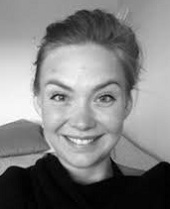 Dr Höckert uses a narrative approach asking you to imagine a typical day in the life of tourist. The purpose of her chapter is to question the idea of environmental crises as something that we assume we will have to face in the future with the key concepts being identified.
Dr Höckert uses a narrative approach asking you to imagine a typical day in the life of tourist. The purpose of her chapter is to question the idea of environmental crises as something that we assume we will have to face in the future with the key concepts being identified.
Dr Emily Höckert is a Postdoctoral Fellow in Tourism Studies at the Linnaeus University in Sweden. In the broadest level, her research is driven by curiosity of how hosts and guests – human and more-than human – welcoming each other in tourism settings. Her approach questions hospitality, ethics, care and storytelling at the crossroads of hermeneutic phenomenology, postcolonial philosophy and new materialism.
Marianna Sigala: Science Fiction as a Thinking Machine
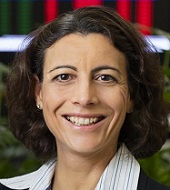 COVID-19 is a transformational agent and stressor demanding tourism actors to recalibrate priorities and values in order to redefine what a ‘better’ tourism future might be and to prioritise actions and plans on how to build back ‘better’. Even if the need to change cannot be solely attributed to COVID-19, what the pandemic has done is to accelerate and magnify the urgent need to reset and reform tourism as it has highlighted and intensified long discussed issues that were overdue for action. Using science fiction as a “thinking machine” or a means to find new forms of tourism, and realising that the future of the tourism is not the same as the past, requires new ways of conceptualising the future.
COVID-19 is a transformational agent and stressor demanding tourism actors to recalibrate priorities and values in order to redefine what a ‘better’ tourism future might be and to prioritise actions and plans on how to build back ‘better’. Even if the need to change cannot be solely attributed to COVID-19, what the pandemic has done is to accelerate and magnify the urgent need to reset and reform tourism as it has highlighted and intensified long discussed issues that were overdue for action. Using science fiction as a “thinking machine” or a means to find new forms of tourism, and realising that the future of the tourism is not the same as the past, requires new ways of conceptualising the future.
Marianna Sigala is Professor at the University of Piraeus, Greece. She previously hold the position of the Professor of Tourism and the Director of the Centre for Tourism & Leisure Management at the University of South Australia (2015 – 2021). Her interests include services and experience management, Information and Communication Technologies (ICT) in tourism and hospitality, as well as wine tourism. She is a widely published and multi-awarded authority: eleven books, numerous papers in academic journals, and (keynote) presentations in international conferences. She has a long record of leadership and participation in international research projects funded by various entities such as the E.U., the Council of Europe and the Department of Foreign Affairs and Trade, Australia.
Chair: Una McMahon-Beattie
 Professor Una McMahon-Beattie is Manager of Accreditation at Ulster Business School. McMahon-Beattie has published extensively in leading journals and is author/co-editor of seven books including the ‘The Future of Events and Festivals’ and ‘The Future of Food Tourism: Foodies, Experiences, Exclusivity, Visions and Political Capital’. Recent research grants in the area of food include an investigation into the balance of healthy versus less healthy food promotions among Northern Ireland food retailers (Food Standards Agency) and the balance of healthy versus less-healthy food promotions.
Professor Una McMahon-Beattie is Manager of Accreditation at Ulster Business School. McMahon-Beattie has published extensively in leading journals and is author/co-editor of seven books including the ‘The Future of Events and Festivals’ and ‘The Future of Food Tourism: Foodies, Experiences, Exclusivity, Visions and Political Capital’. Recent research grants in the area of food include an investigation into the balance of healthy versus less healthy food promotions among Northern Ireland food retailers (Food Standards Agency) and the balance of healthy versus less-healthy food promotions.
